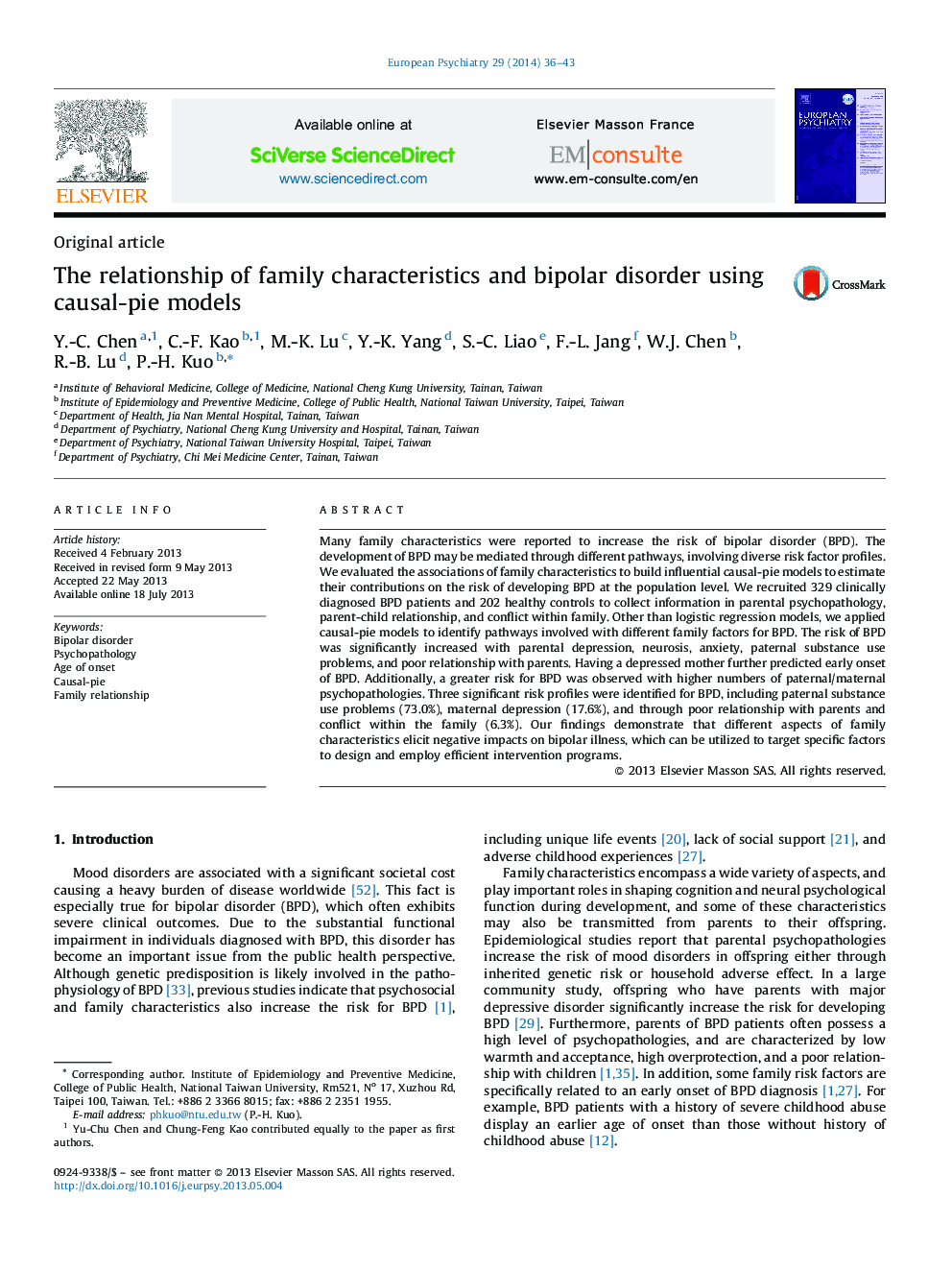| کد مقاله | کد نشریه | سال انتشار | مقاله انگلیسی | نسخه تمام متن |
|---|---|---|---|---|
| 4184321 | 1277305 | 2014 | 8 صفحه PDF | دانلود رایگان |
Many family characteristics were reported to increase the risk of bipolar disorder (BPD). The development of BPD may be mediated through different pathways, involving diverse risk factor profiles. We evaluated the associations of family characteristics to build influential causal-pie models to estimate their contributions on the risk of developing BPD at the population level. We recruited 329 clinically diagnosed BPD patients and 202 healthy controls to collect information in parental psychopathology, parent-child relationship, and conflict within family. Other than logistic regression models, we applied causal-pie models to identify pathways involved with different family factors for BPD. The risk of BPD was significantly increased with parental depression, neurosis, anxiety, paternal substance use problems, and poor relationship with parents. Having a depressed mother further predicted early onset of BPD. Additionally, a greater risk for BPD was observed with higher numbers of paternal/maternal psychopathologies. Three significant risk profiles were identified for BPD, including paternal substance use problems (73.0%), maternal depression (17.6%), and through poor relationship with parents and conflict within the family (6.3%). Our findings demonstrate that different aspects of family characteristics elicit negative impacts on bipolar illness, which can be utilized to target specific factors to design and employ efficient intervention programs.
Journal: European Psychiatry - Volume 29, Issue 1, January 2014, Pages 36–43
